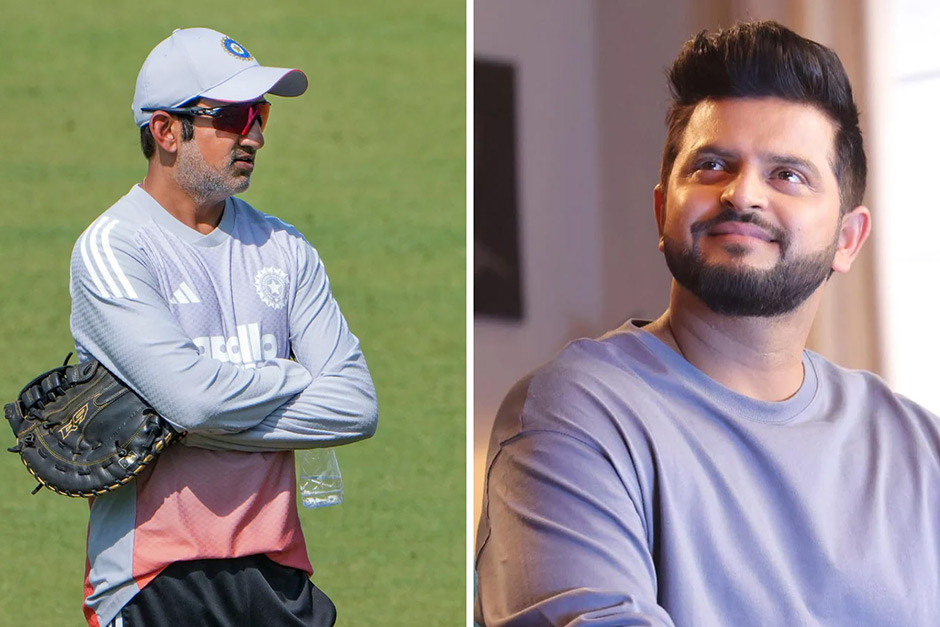In the often-turbulent world of Indian cricket, where opinions swing as wildly as a fast bowler’s inswinger, former international star Suresh Raina has once again stirred the pot. Known for his candid remarks, Raina recently weighed in on the ongoing discussions surrounding Team India’s coaching landscape and performance. His unequivocal defence of fellow World Cup winner Gautam Gambhir, coupled with his insight into the core issues plaguing the national side, offers a fresh perspective amidst perpetual scrutiny.
Raina’s comments, specifically stating that a coach “shouldn’t be sacked,” come at a time when Gambhir’s name is increasingly linked with high-profile coaching roles, including potentially the head coach position for Team India. This endorsement from a respected contemporary not only boosts Gambhir’s standing but also shifts the focus from individual accountability to a broader systemic understanding of challenges faced by Indian cricket.
Raina’s Staunch Defence of Gambhir: A Strategic Mind
Suresh Raina’s advocacy for Gautam Gambhir is rooted in a deep understanding of Gambhir’s tactical prowess and leadership qualities. Raina, who shared dressing rooms and numerous triumphs with Gambhir, highlighted the strategic depth and winning mentality that the former opener brings to any setup. Gambhir’s success as a mentor for Kolkata Knight Riders in the Indian Premier League (IPL), guiding them to two titles and most recently to the 2024 trophy, has only amplified calls for him to take on a larger role in Indian cricket.
Raina’s stance suggests that Gambhir’s contributions extend far beyond mere technical coaching. He represents a mindset, a competitive spirit, and an ability to forge a winning unit under pressure – attributes that Raina believes are invaluable. The implication is clear: leaders like Gambhir are assets, not liabilities, and their potential should be harnessed, not dismissed prematurely. The cricketing fraternity often discusses the need for strong, clear-headed leadership, and Raina’s defence frames Gambhir as exactly that kind of figure, someone who can instil discipline and a clear vision within a squad.
Pinpointing the ‘Real Problem’ for Team India
Beyond defending Gambhir, Suresh Raina went a step further, articulating what he perceives as the fundamental “problem” for Team India. His insights suggest that the issues are less about the competence of an individual coach and more about the underlying structure and approach. This is a crucial distinction, moving the debate away from the superficial “blame game” that often follows periods of underperformance, particularly in major tournaments.
Raina’s commentary often touches upon player empowerment, strategic clarity, and the mental fortitude required for high-stakes games. While not explicitly laying out a list, his sentiment implies that a lack of consistent long-term planning, coupled with fluctuating selection policies or an inability to adapt under pressure, might be the real hurdles. He believes that fostering a fearless environment and backing players consistently are paramount.
“Gautam bhai (brother) brings unmatched tactical acumen and a winner’s mentality. To even suggest sacking a coach like him, who understands the pulse of Indian cricket, is short-sighted. The problem isn’t often with the individual at the helm, but sometimes with a lack of consistent clarity in our long-term strategy and backing for certain roles, especially when it comes to big tournaments. We need to empower players and ensure they play fearlessly, irrespective of the opposition.”
This quote encapsulates Raina’s nuanced view: celebrating Gambhir’s strengths while subtly pointing towards areas where the team might be falling short on a broader organizational level. It’s a call for introspection beyond the immediate results, urging for a focus on processes and player development over quick fixes.
Beyond the Dugout: A Broader Look at Indian Cricket
Raina’s comments resonate deeply within the context of Indian cricket’s recent history, particularly its performance in ICC tournaments. Despite possessing a wealth of talent and often dominating bilateral series, the national team has frequently faltered at the final hurdles in multi-nation events. This pattern has led to constant discussions about coaching changes, captaincy, and player combinations. Raina’s contribution to this discourse is significant because he directs attention away from merely swapping personnel and towards a more profound examination of the team’s strategic blueprint and psychological preparedness.
His emphasis on empowering players and fostering a fearless approach highlights a potential area for improvement. In a high-pressure environment like international cricket, particularly for a team under the immense expectations of a billion-plus fans, mental resilience and strategic clarity become as vital as skill. Raina’s analysis suggests that without addressing these fundamental aspects, changes in coaching staff alone may not yield the desired long-term success.
Suresh Raina’s defence of Gautam Gambhir and his insights into Team India’s challenges provide valuable food for thought. His comments serve as a reminder that success in elite sport is rarely about one person or one simple solution. Instead, it often requires a holistic approach that combines strong leadership, clear strategic direction, player empowerment, and a relentless focus on creating a winning culture. As Indian cricket continues its quest for global dominance, voices like Raina’s offer crucial perspectives that can help shape its future trajectory.




